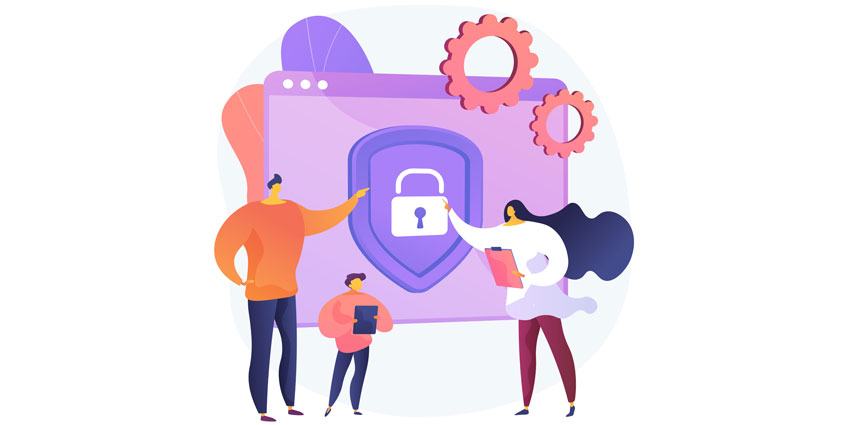These days, just going on the internet can make you vulnerable to malware, viruses, and hackers. The Apple App Store and Google Play Store have both been found to be awash in malicious apps. Hackers are sending you phishing emails to try and steal your information, or trying to deploy ransomware so they can hold your data hostage. It’s hard to stay safe.
But while you may not be able to divert every attempt hackers make, you can turn away a lot of them and turn your chances of falling victim to a cyberattack way down. Just by adjusting your browser’s security settings, taking some steps to stop advertisers from tracking you, and protecting your account passwords, you can make browsing the web a whole lot safer.
7 Tips to Browse Internet Safely
Optimize Your Browser’s Security Settings
You don’t have to start using Tor as your only browser in order to tighten up your browser security. One of them is to turn off cross-site tracking. Businesses use cross-site tracking when they follow your activity across different websites and devices and use the information they gain to send you advertisements. You can tell your browser to disable cross-site tracking, as long as you know how to find the right setting.
Delete Cookies
Browser cookies are small bits of code that hold data about your browsing activities. They can be useful – for example, sites use them to remember users’ login information. But advertisers can also use them to track your activity, and some cookies contain sensitive information (like passwords) that hackers can steal or forge.
Use a Privacy-Friendly Search Engine
Most popular search engines track your browsing activity in order to serve you relevant ads. But if you don’t want your activity tracked and your data mined and sold, you can use a privacy-friendly search engine that doesn’t store your browsing activity or IP address. Some popular privacy-friendly search engines include DuckDuckGo, Mojeek, Ecosia, and Qwant.
Block Ads
Have you ever heard of “malvertising”? It’s online advertising that spreads hidden malware. An ad blocker will protect you from malvertising, it’ll make browsing the web that much more fun since you won’t have to look at advertisements and pop-ups all over the place.
Only Visit Secure Sites
Hackers might use malicious websites to steal your login credentials for banking or shopping sites. But you can also come across malicious websites in the course of browsing the web – they don’t have to be sent to you in a phishing email. Buy a premium online security suite to protect you from malicious websites and insecure connections. Make sure you’re only visiting secure connections – only URLs that start with HTTPs. If there’s a lock symbol in the address field to the left of the URL, you’re good.
Use Good Password Hygiene
Are you one of those people that uses the same password for every one of your online accounts? What do you think would happen if a hacker got hold of the password to one of your accounts? They’d be able to access all of them – including things like your bank account and credit cards.
Do not underestimate the power of good password hygiene to protect your information online. Use a strong, unique password for each of your online accounts. A password manager is a good way to keep track of your passwords, and it comes standard with many online security suites. Password managers also typically have password generators that can help you come up with lengthy, unique, and hard-to-guess passwords for all of your accounts.
Implement Two-Factor Authentication
Two-factor authentication (2FA) or multi-factor authentication (MFA) adds an extra layer of security to your online accounts. It adds a second step to your login process, requiring you to provide one or more additional pieces of information in order to gain access to your account. For example, you might enter your normal username and password and then be required to put in a code that is texted to your phone. 2FA and MFA are more secure than password protection alone because they offer a second layer of protection in case your password is compromised.
The internet isn’t as safe as it once was. Malware is everywhere – in advertisements, in your email inbox, and even in trusted sources like the App Store. But even though it’s riskier, you can still have a good time and get your business done online and come away unscathed. Do what you can to browse the internet safely, so you don’t end up compromising your privacy, or falling victim to a phishing scam or ransomware attack.

